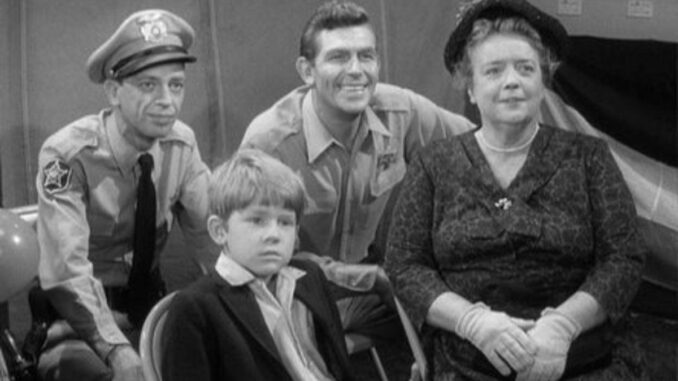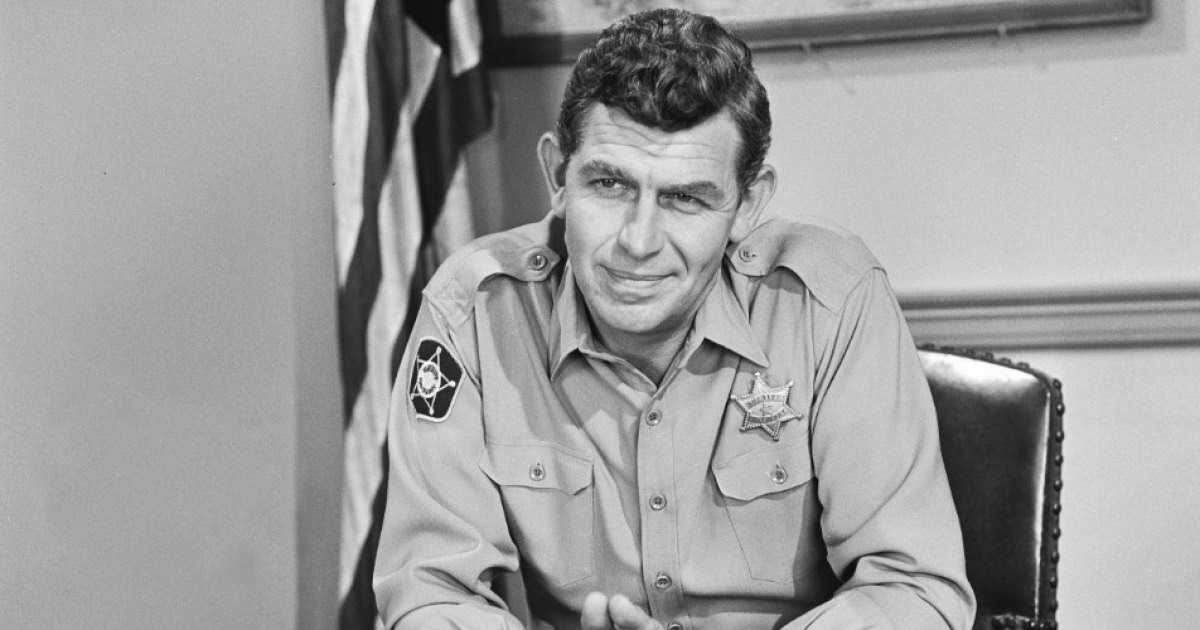
The Surprising Truth: ‘The Andy Griffith Show’ Creator Wanted to Remove Andy’s Name from the Title
When you think of classic American television, The Andy Griffith Show is probably one of the first to come to mind. Warm-hearted, simple, and rooted in small-town charm, the series became a cultural landmark. But here’s something that might surprise even the biggest Mayberry fans: the show’s creator once considered removing Andy Griffith’s name from the title altogether.
Yes, really.
In this deep-dive, we’ll explore the surprising backstory behind that controversial idea, uncover what led to it, and how it would have changed the legacy of one of TV’s most iconic sitcoms forever.
Why Andy Griffith’s Name Was in the Title to Begin With
From the beginning, Andy Griffith wasn’t just the star — he was the face, heart, and soul of the show. After his breakout performance in A Face in the Crowd (1957), CBS saw potential in Griffith as a TV lead. His folksy charm, comedic timing, and natural charisma were a perfect fit for what would become a family-friendly sitcom.
The network titled it The Andy Griffith Show to leverage his name recognition. It was a branding move. Audiences would instantly know who was headlining, and that helped draw viewers in.
But behind the scenes, there was more going on.
The Man Behind the Vision — Sheldon Leonard
Sheldon Leonard, the show’s co-creator and executive producer, was a major figure in the golden age of television. While he trusted Andy Griffith’s talent, he had serious concerns about the show’s identity and long-term direction.
Leonard reportedly believed the show should be more about the town than the man. He envisioned Mayberry as the true star — a timeless place filled with quirky but lovable characters.
And so the idea began forming: maybe the show’s title shouldn’t revolve around one man.
What Would the Show Have Been Called?
Had Sheldon Leonard followed through, The Andy Griffith Show could’ve been renamed something more ensemble-focused. Possible alternate titles floated around included:
-
Mayberry, U.S.A.
-
Sheriff of Mayberry
-
Life in Mayberry
These titles would’ve highlighted the setting over the star. It would’ve framed the show as a slice-of-life comedy about a whole town — not just Andy.
But here’s the twist: even Andy himself wasn’t entirely against the idea.
Andy Griffith’s Humility Played a Role
Andy was never someone who sought the spotlight. He famously said he never wanted to be the “funny one” on the show — he wanted to be the straight man. He believed comedy should come from the characters around him, not from him being the punchline.
In fact, Griffith reportedly supported the idea of downplaying his role in favor of building up the ensemble cast. He knew the true magic came from Don Knotts’ Barney Fife, Frances Bavier’s Aunt Bee, and Ron Howard’s young Opie.
The Rise of the Ensemble Cast
Over time, the supporting cast became just as beloved as Andy. Viewers tuned in for more than just the sheriff — they came to see Gomer’s goofy grins, Barney’s bungled police work, and Floyd’s barbershop babble.
This success only validated Sheldon Leonard’s instincts. But by then, the title had already stuck.
Changing it mid-run would’ve created confusion and risked losing the show’s growing audience.

The Network Said “No Way”
CBS wasn’t having it. They knew Andy Griffith’s name was a major selling point, especially in the early seasons. Dropping his name might have jeopardized the show’s branding and ratings.
Network executives believed — and rightly so — that Andy Griffith’s identity was inextricably tied to the show’s success.
So the title stayed. And the rest is TV history.
How the Show Might’ve Looked Without Andy in the Spotlight
Had the creators moved forward with the ensemble-first vision, we might’ve seen more plotlines built around secondary characters much earlier. Barney Fife may have taken center stage more often, and episodes may have focused more deeply on the townspeople of Mayberry.
In essence, the show might’ve been more like Cheers or The Office — where the setting and ensemble define the narrative rather than a single lead.
Would It Have Worked Without Andy’s Name?
Let’s be honest — probably not.
Andy’s calm, wise, and fatherly presence grounded the show. He was the glue that held Mayberry together. Stripping his name from the title would’ve taken away a layer of familiarity that viewers cherished.
Sometimes, a name is more than branding — it’s a promise of tone and heart.
The Power of a Title in Television Branding
TV titles are everything. They give the audience their first impression. Removing Andy’s name could’ve turned off fans who tuned in specifically for him.
Imagine if Seinfeld was renamed Friends in Manhattan — it just doesn’t carry the same weight.
Griffith’s Quiet Leadership Style
What makes Andy Griffith’s role so unique is how much he gave away. He didn’t hog screen time. He allowed Don Knotts to steal scenes and encouraged strong writing for side characters.
That’s rare. And it’s probably why the ensemble blossomed so quickly — because Andy allowed space for it to happen.
Don Knotts Nearly Became the Star
Let’s not forget — Don Knotts won five Emmys for playing Barney Fife. He was a breakout star. At one point, he was even more talked about than Andy himself.
This only fueled Leonard’s belief that the show could thrive as an ensemble piece. But even Don recognized that the show needed Andy’s calm energy to work.
The Departure of Don Knotts Changed Everything
When Don Knotts left the show in Season 5, it became clear just how much Andy was needed to maintain balance. Without Barney’s zany energy, the responsibility of holding the show together fell squarely back on Andy’s shoulders.
And without Andy’s name in the title? That would’ve felt like a betrayal of the audience’s expectations.
The Legacy of the Title That Almost Changed
Today, it’s hard to imagine The Andy Griffith Show being called anything else. The name evokes nostalgia, comfort, and simplicity. It speaks to an era of gentle humor and moral clarity.
Sometimes, tradition wins for a reason.
Would Mayberry Be Mayberry Without Andy?
No way. Andy was more than the sheriff — he was the heart and soul of the town. His slow drawl, thoughtful expressions, and fatherly wisdom made Mayberry feel safe.
Removing his name from the title might’ve broken that illusion.
Other Shows That Changed or Almost Changed Titles
To put it in perspective, other shows have toyed with title changes:
-
Friends was almost Insomnia Cafe
-
The Big Bang Theory was almost Lenny, Penny, and Kenny
-
Happy Days was originally Cool
In each case, the final title ended up being just right. Just like Andy’s show.
Conclusion: A Title That Stuck for All the Right Reasons
While the creators may have had noble intentions — focusing on Mayberry rather than a single man — the truth is, The Andy Griffith Show worked because of its heart. And that heart was Andy.
Removing his name would’ve been like removing the sun from a solar system — everything else might still revolve, but the warmth would be gone.
So while the debate over the title existed, fans can breathe easy knowing it stayed just the way it should’ve.
5 Unique FAQs
1. Did Andy Griffith want his name in the title originally?
Not necessarily. Andy wasn’t obsessed with fame and even supported giving more attention to the ensemble cast.
2. Who pushed for Andy’s name to be removed from the title?
Sheldon Leonard, the show’s creator, believed Mayberry should be the focus, not Andy as an individual.
3. Would the show have been successful under a different name?
Maybe — but it likely wouldn’t have become as iconic. Andy’s name helped sell the show initially.
4. Were there other potential names for the show?
Yes, titles like Mayberry, U.S.A. and Sheriff of Mayberry were discussed behind the scenes.
5. Did any cast members support changing the title?
While there’s no public record of the whole cast’s opinion, Andy Griffith himself was reportedly supportive of the ensemble-first idea.